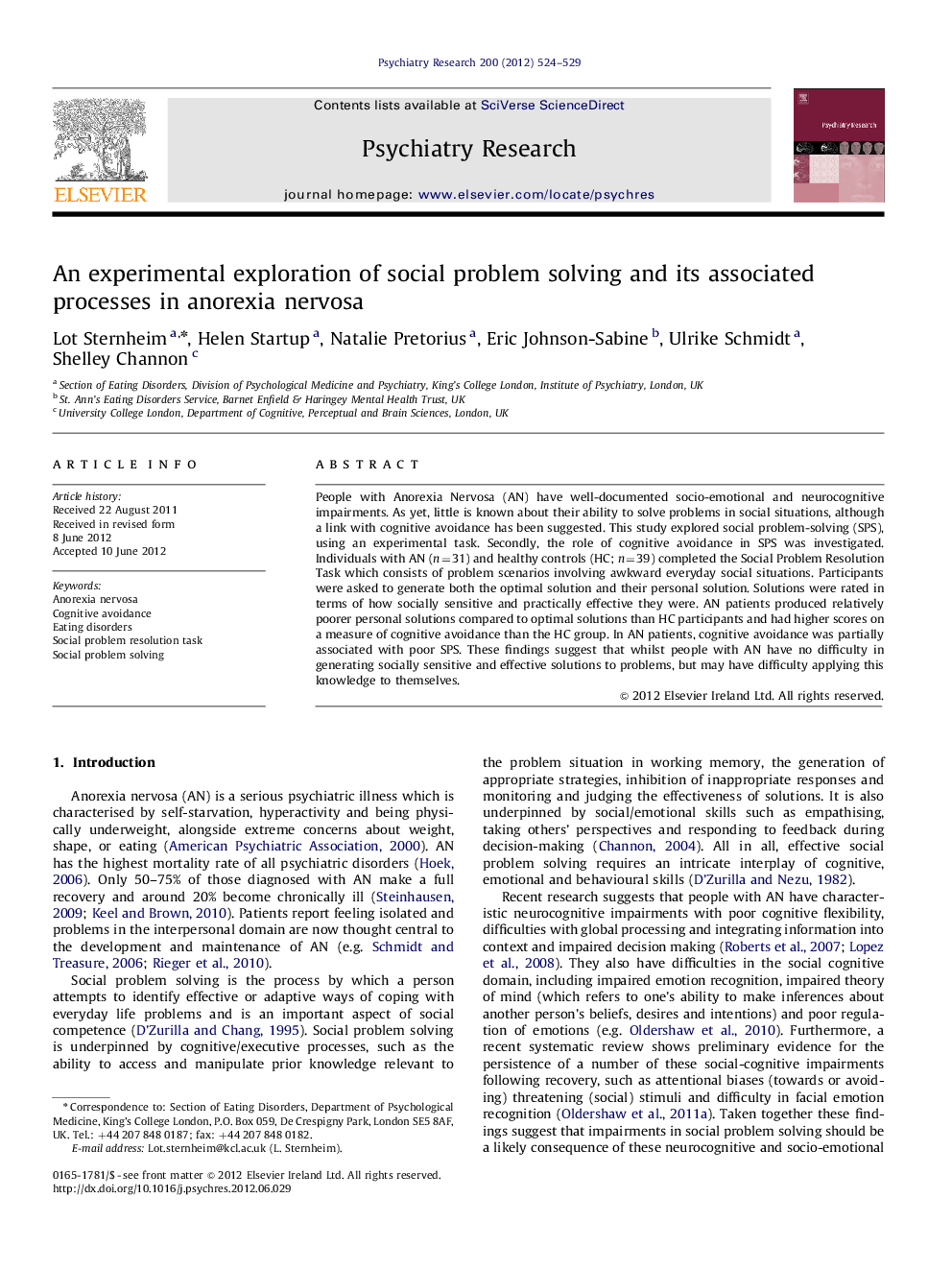| Article ID | Journal | Published Year | Pages | File Type |
|---|---|---|---|---|
| 6816095 | Psychiatry Research | 2012 | 6 Pages |
Abstract
People with Anorexia Nervosa (AN) have well-documented socio-emotional and neurocognitive impairments. As yet, little is known about their ability to solve problems in social situations, although a link with cognitive avoidance has been suggested. This study explored social problem-solving (SPS), using an experimental task. Secondly, the role of cognitive avoidance in SPS was investigated. Individuals with AN (n=31) and healthy controls (HC; n=39) completed the Social Problem Resolution Task which consists of problem scenarios involving awkward everyday social situations. Participants were asked to generate both the optimal solution and their personal solution. Solutions were rated in terms of how socially sensitive and practically effective they were. AN patients produced relatively poorer personal solutions compared to optimal solutions than HC participants and had higher scores on a measure of cognitive avoidance than the HC group. In AN patients, cognitive avoidance was partially associated with poor SPS. These findings suggest that whilst people with AN have no difficulty in generating socially sensitive and effective solutions to problems, but may have difficulty applying this knowledge to themselves.
Related Topics
Life Sciences
Neuroscience
Biological Psychiatry
Authors
Lot Sternheim, Helen Startup, Natalie Pretorius, Eric Johnson-Sabine, Ulrike Schmidt, Shelley Channon,
